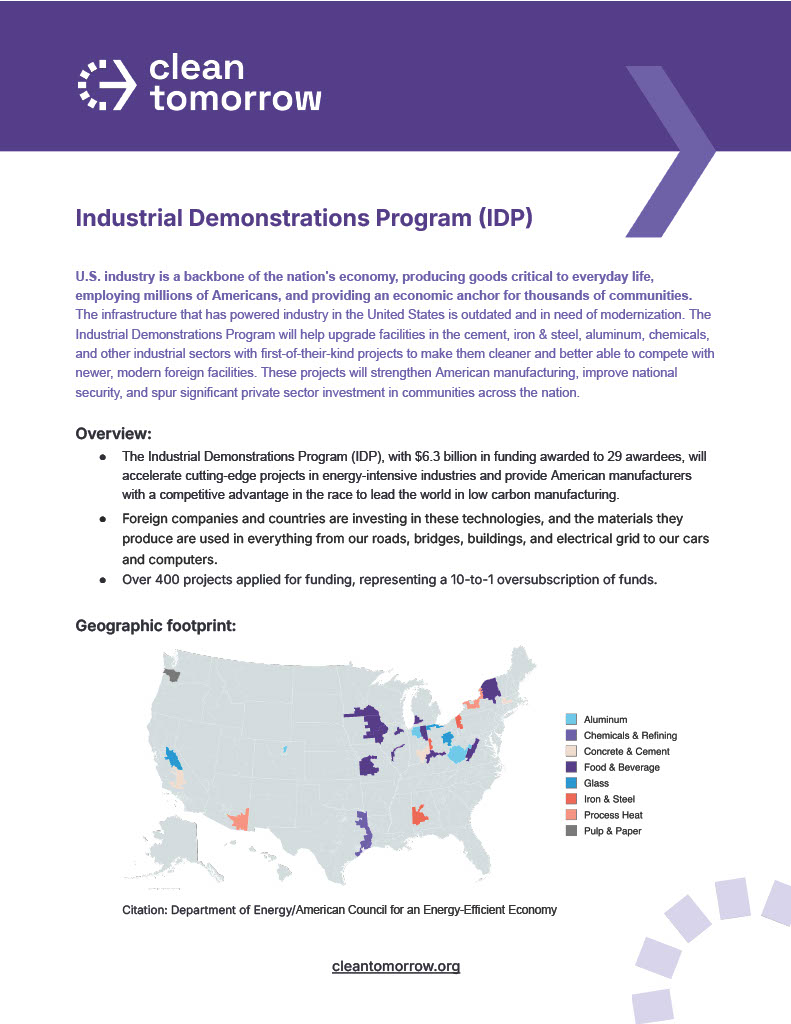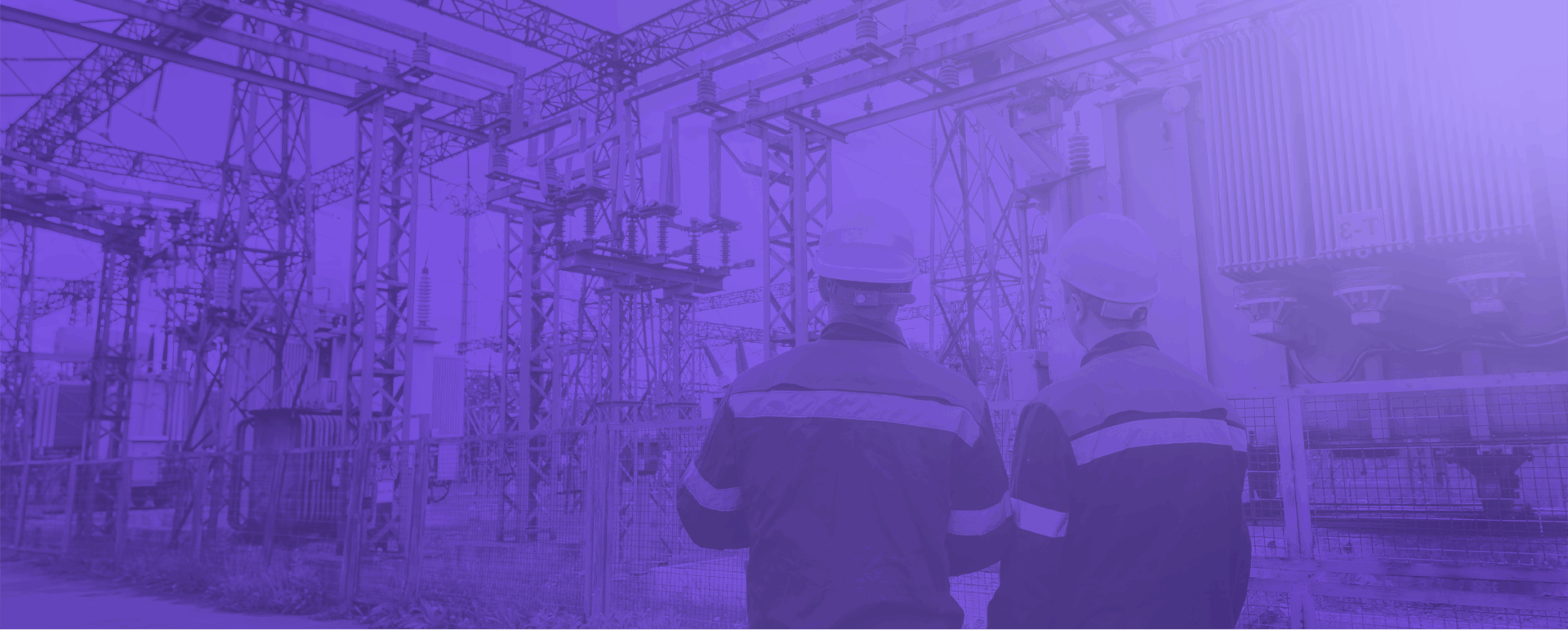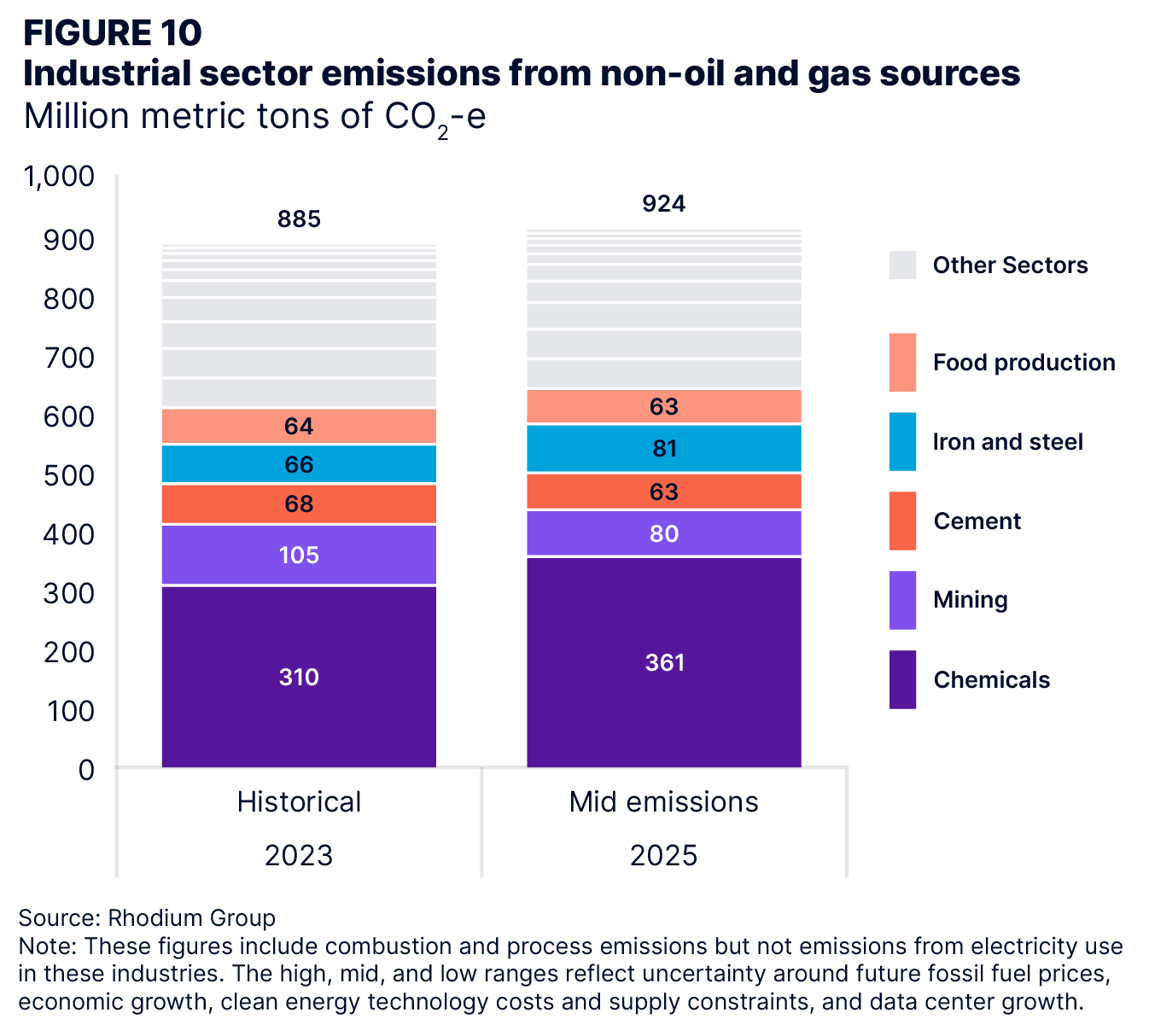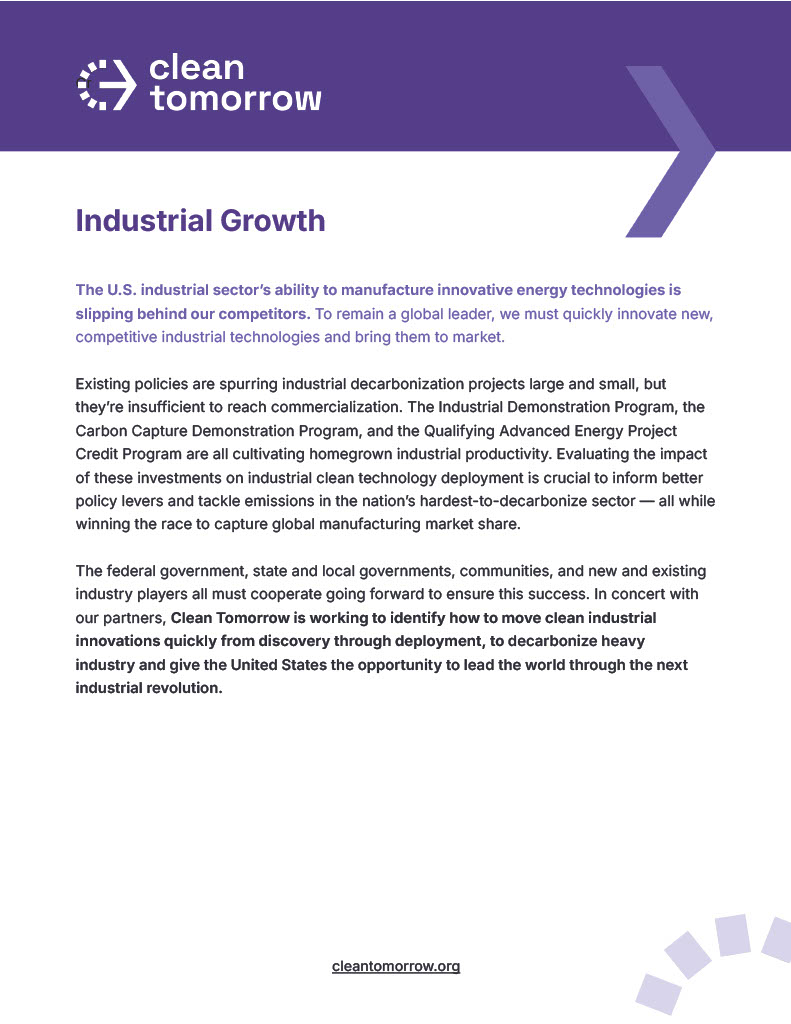
Industrial Growth
Lead the world through the next industrial revolution.

The Issue
Emerging economies across the globe are building new industrial facilities at a significant pace. We must successfully innovate and deploy homegrown clean technologies —– or risk losing the global race in clean manufacturing.
Our Solution
Clean Tomorrow is creating the policies and building the political support necessary to develop and deploy the technologies that will reduce emissions in heavy industry and ensure the United States leads the next industrial revolution.
By 2033, industry in the United States is set to be the highest emitting economic sector. Under the current policy framework, additional reductions are unlikely to materialize across chemical production, cement manufacturing, iron and steel production, and food production.
Figure: Industrial Decarbonization Through 2035

We need new policies to speed the deployment of off-the-shelf technologies in industry and to develop innovative ways to meet this challenge. These industries will need additional support to deploy clean technologies available today while innovating, developing, demonstrating, and deploying new solutions to grow our industrial economy.
Recent laws spurred investments in industrial demonstration projects, large and small. They increased incentives for important complementary solutions like carbon capture and storage and clean hydrogen production. Evaluating the impact of these investments on the viability of industrial clean technology deployment and on the market demand for low-carbon industrial products is crucial to inform better industrial policy levers.
Cooperation between the federal government, state and local governments, communities, existing industry, and new players in these sectors will be critical to our success. Leading the next industrial revolution is going to require policies that move clean industrial innovations from discovery to deployment at a scale never seen before.
Our Work
We are developing new policies and building impactful coalitions to power industrial growth. Specifically, we are:
- Conducting new analyses to inform policy development
- Engaging diverse stakeholders to ensure alignment on the need and possibility for solutions
- Building public awareness and educating decision makers on the need to continue to innovate and support deployment and manufacturing in the industrial sector
